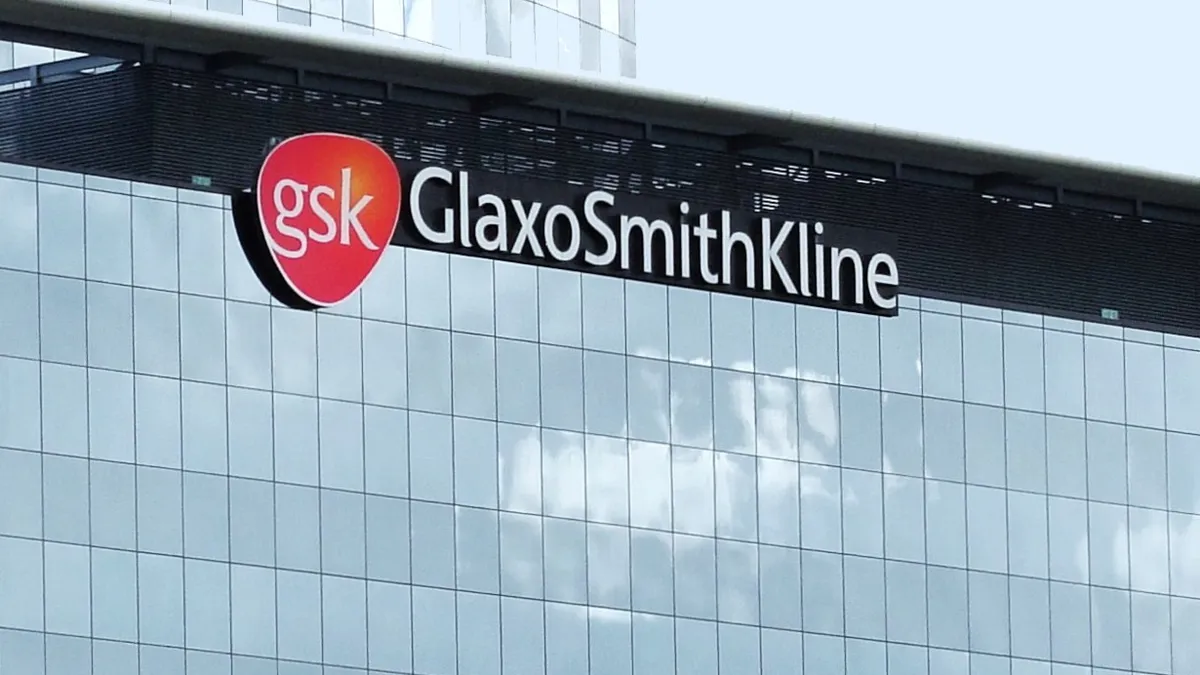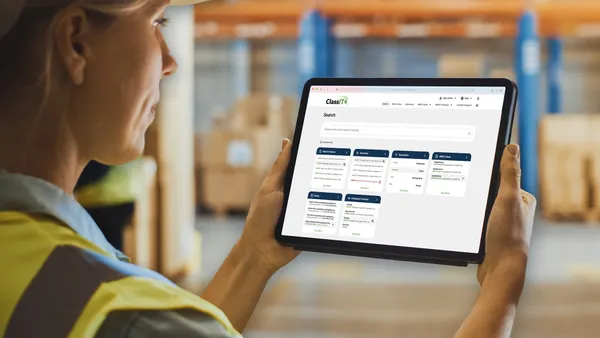Dive Brief:
- Viant, an Ethereum-based blockchain platform built for supply chains, will collaborate with pharmaceutical company GlaxoSmithKline and several others to speed deployment of blockchain-based supply chain systems.
- For the biopharma industry, blockchain could help manage complicated supply chains and provide the means to track use of licensed technologies — an area GSK plans to explore with Viant, according to a release.
- Other companies participating in Viant's beta test include Imaginea, a zero carbon venture; Microsoft; The Wold Wildlife Fund, which seeks to create more sustainable fisheries, and an unspecified oil and gas company.
Dive Insight:
The pharmaceutical industry is experimenting blockchain, partly in an effort to meet Drug Supply Chain Security Act standards.
"In the near future governments and regulatory bodies will recognize the power of blockchain technology and mandate its use in the pharmaceutical industry," said Tyler Mulvihill, cofounder of Viant. "For example, the U.S. Drug Supply Chain Security Act has mandated unit-level track and traceability for pharmaceuticals by 2023. Blockchain is an amazing way accomplish this in a provably immutable way."
As an industry used to license constraints and logistics risks, a transparent supply chain management system can help to better ensure products are protected. For drug products, third-party manufacturers may incorporate active pharmaceutical ingredients from another supplier into production of a finished good that is then labeled and branded. Drugmakers need to control that process to guarantee proper handoff of intermediate goods and final product labeling.
Pharmaceutical supply chains have run afoul of regulatory standards and can face inexpert product management issues, where drugs are either over or understocked — a serious concern given patient needs.
A recent study revealed that the pharmaceutical supply chain has spent at least $230 million on drug substitutions as a result of poor organization within its supply chain.
Blockchain technology could be one avenue to help resolve some of those complexities.
"The Viant beta participants are at the forefront of innovation and have demonstrated their leadership in each of their respective industries by building real blockchain solutions using the Viant platform," Mulvihill told Supply Chain Dive. "Blockchain will follow the course of traditional technology intake by large organizations and we expect to see some of our customers move to pilot and production applications in 2018."
While industrial use of blockchain remains nascent, Viant believes the technology has clear value for many industries, including pharma.
"Some customers are looking to Viant to expose transparency in their supply chains to increase customer confidence, while others are looking for the operational efficiency gains that come from one single source of truth between multiple parties," Mulvihill said. "That said, most of the benefits fall into one of three categories: 1) driving cost efficiencies, 2) better compliance through trust and transparency and 3) enhancing customer experience through trust and transparency."














